



















FEBRUARY 2025































































































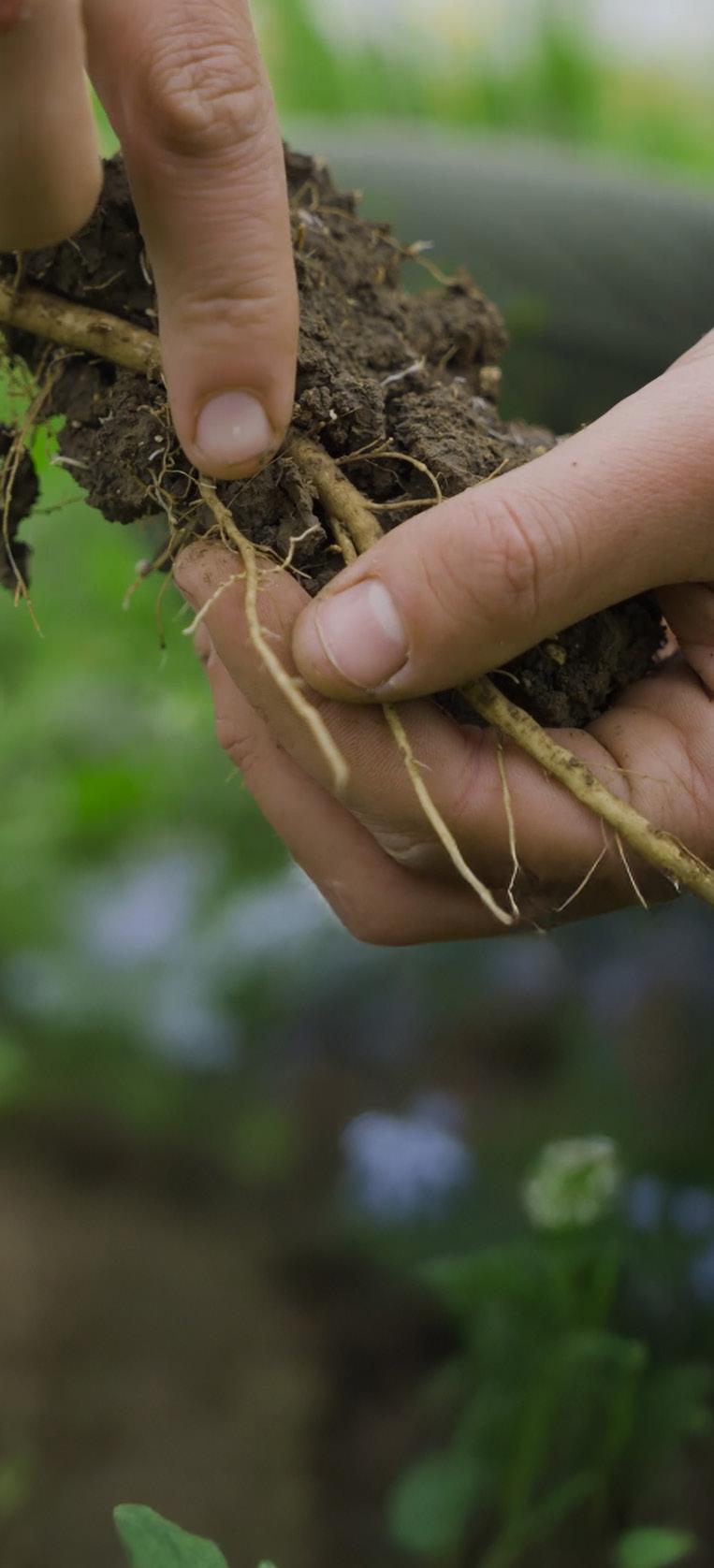









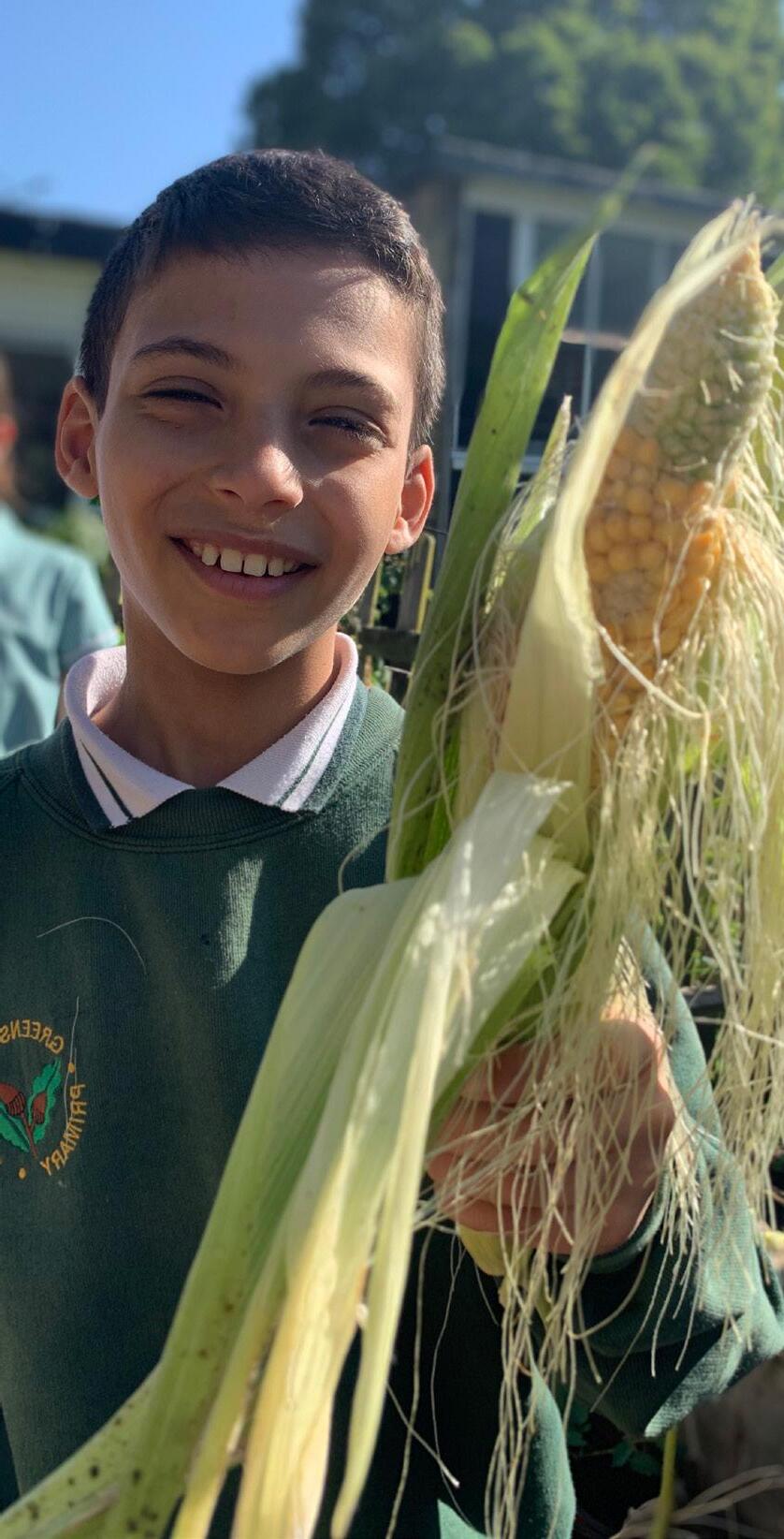



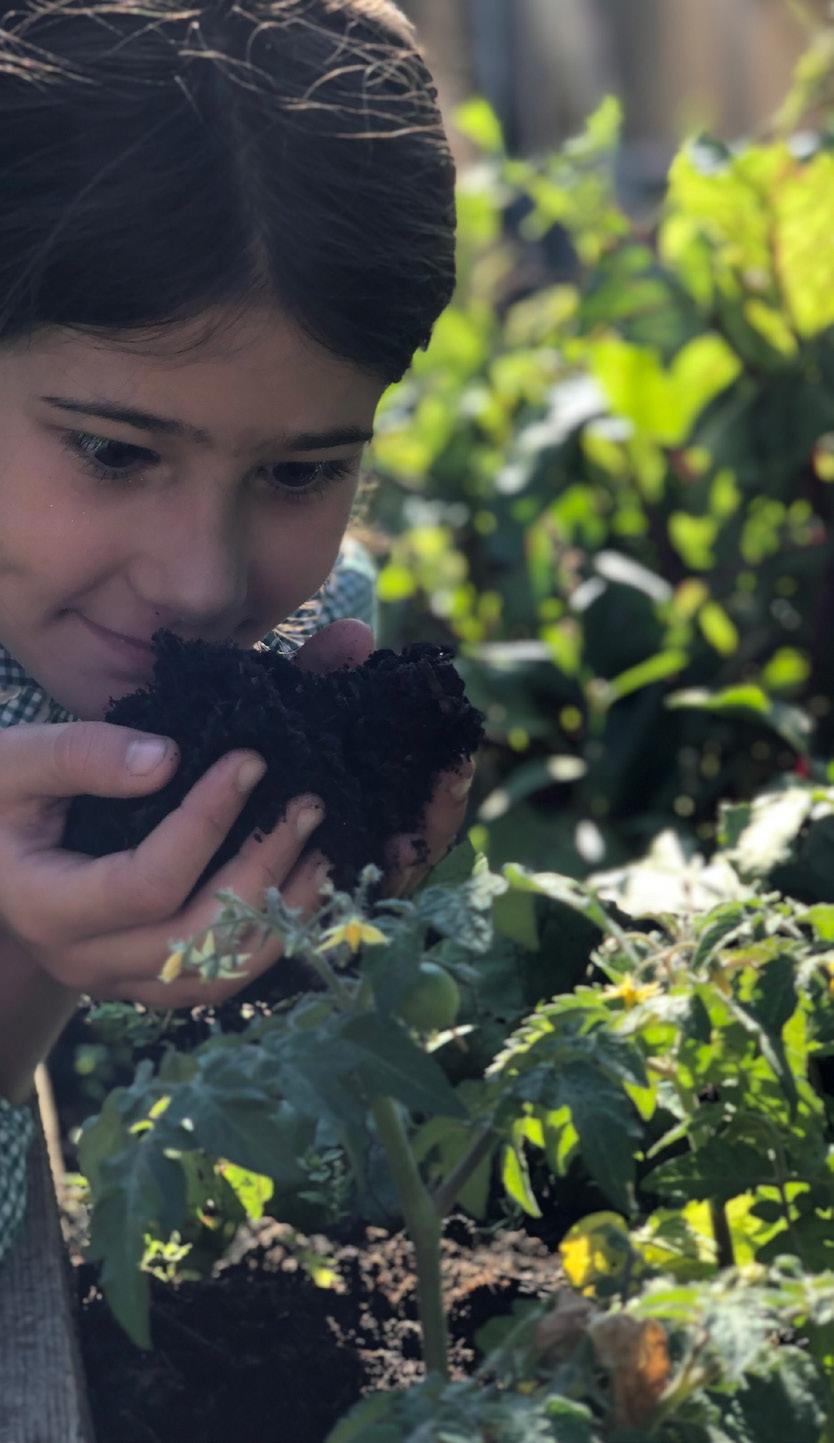







As a member of the farming community, I have seen first hand the challenges faced by farmers. The feeling of being obsolete, the difficulty in getting a skilled workforce, the lack of diversity, the feeling that our vital industry may be dying.
What I have is a long-term vision that strengthens the farming sector for the future and for the benefit of all.
I’m not here because I’m special but because we, each and every one of us, are special. The farmers, the educators, the young people, the communities who rely on the land to feed this nation, and the future of our planet - we are special. And we deserve that understanding. We deserve an education system that equips the next generation with the knowledge and tools they need to solve the challenges of tomorrowsustainable farming, food security, and a sustainable future that will regenerate our soil, farming and communities.
I also believe that each and every child deserves to grow up with the understanding of where their food comes from and the impact it has on their world. Food literacy should be democratised, not a privilege of the few.
This white paper posits that embedding food, farming and sustainability education into the National Curriculum by 2030 is a pivotal yet underutilised strategy. Such integration aims to tackle the root causes of health disparities, alleviate future public health expenditures, enhance educational outcomes, and align with the UK's economic and sustainability objectives, all while equipping future generations with the necessary tools for a prosperous and sustainable society.
Programmes in Japan and the Netherlands have shown a 15% reduction in childhood obesity rates through similar initiatives of getting food literacy embedded into schools. In these countries, the integration of food education into schools has been directly linked to healthier eating patterns and reduced rates of diet-related illnesses.
This is not just education reform, it is a national strategy for a stronger, healthier, and more resilient future with a targeted integration of vital subjects within existing frameworks.
This campaign seeks to ensure that the agricultural industry becomes more accessible, inclusive, and welcoming to people from diverse backgrounds, whether related to gender, race, ethnicity, or socio-economic status. It also aims to attract a wider pool of talent into the sector and ensure that everyone, regardless of their background, has an equal opportunity to thrive in farming.
Farming is not just about being a farmer or agricultural worker, it is a broad industry with opportunities in technology, engineering, business management, sustainability, food science, marketing, and education. It needs agritech specialists: developing and implementing technology solutions for precision farming, crop management, livestock monitoring and food scientists working on innovation in food production, preservation and safety; Agricultural educators and trainers teaching and training the future generations of farmers in nature friendly farming practices and working in agricultural extension services to provide practical advice to farmers ready to transition to sustainable practices and regenerative farming.
The NFU’s plan focuses on improving farmers’ resilience, ensuring food security, and supporting farm businesses in terms of productivity, trade and regulation tackles supply chain improvements, financial support, and climate change adaptation in farming practices however, while these points focus on strengthening the agricultural sector, they don’t necessarily address the broader systemic changes that will lead to long-term sustainability or ensure that the future workforce understands the importance of regenerative agriculture, sustainable farming practices, and local food systems.
At COP26, the UK government made ambitious commitments to address climate change and sustainable development, with education seen as a central pillar. Sir Keir Starmer has now recognised that this government's focus should be on the NHS and schools. Action from this white paper approach will benefit both.
Voters want a government that supports British farmers, protects food security, and ensures our future generations grow up well informed and healthy. With the government already acknowledging the failures of the current curriculum, this is a once-in-a-generation opportunity to reshape education in a way that protects public health, strengthens the economy, and secures the future of British food and farming.
We deserve a system that values the future of our land, our children, and our health. Together, we can build a resilient farming future for tomorrow.
Olivia Shave ECOEWE

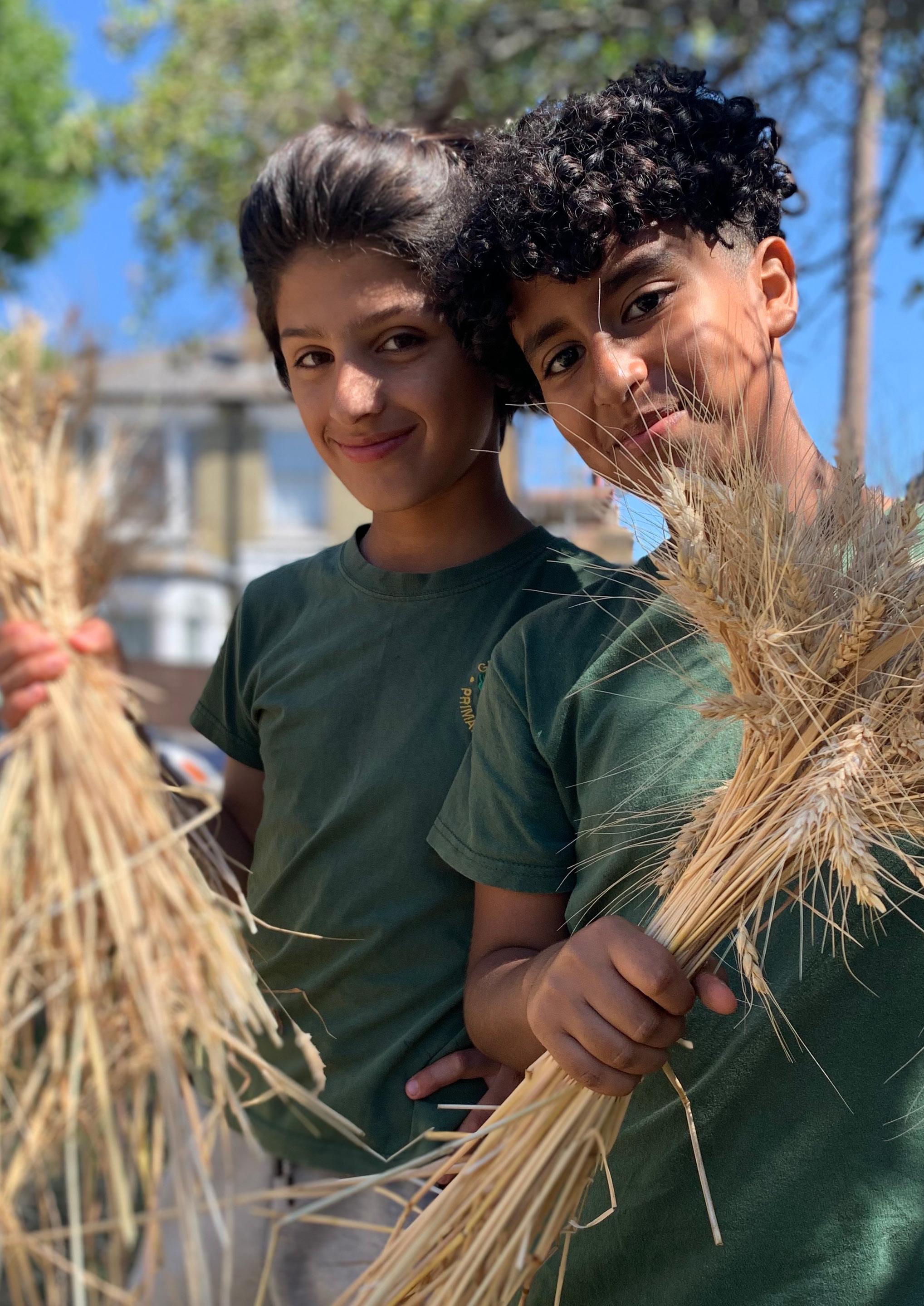
The recent government-commissioned survey by Professor Becky Francis has confirmed that the National Curriculum is not preparing young people for the realities of the modern world.1 It lacks vital education on food, farming, and sustainability, leaving future generations unprepared to make informed choices about their health, the environment, and the economy. This omission exacerbates public health crises, weakens workforce resilience, and undermines the UK’s ability to build a sustainable future.
The UK is facing a critical turning point. Childhood obesity is at record levels, youth mental health is in crisis, and food insecurity continues to rise. At the same time, climate change, food security and economic pressures are threatening the future of the nation’s food system. These challenges are not separate issues, they are interconnected symptoms of a failing approach to education, public health, and sustainability.
This white paper sets out a bold, evidence-based solution: integrating food, farming, and sustainability education into the National Curriculum by 2030. Backed by leading organisations such as Landworkers Alliance, The Harmony Project, The Sustainable Food Trust, Royal Agricultural University, Farmers Guardian, Chefs in Schools, Ministry of Eco Education, Food & Farming Discovery Trust, Alex Gray - Brooksby College and RethinkFoodUk and Country Trust, and aligned with global sustainability frameworks like COP 28/29, this proposal is a practical and necessary reform that will equip young people with the knowledge and skills they need to thrive in the 21st century.
Our recommendation is to embed farming, food and sustainability as a mandatory part of education for children at different stages of their school career and integrated into current subjects. Our proposal includes resources and upskilling for teachers that need it and will provide skills and knowledge that will expand the horizons of children allowing them to pursue careers not currently available to them.
The Royal Agricultural University (RAU) is pleased to support a petition to embed food, farming, and sustainability education into the national curriculum. Greater societal awareness of sustainable agriculture, resilient food systems and climate action is an important global priority. The industry, Government, and civil society response to these challenges is also generating significant impactful employment opportunities for young people in the land-based sector. We are very pleased that an RAU student, Imogen Jones, is proactively supporting this campaign and advocating the importance of embedding these topics in the National Curriculum.
David C. J. Main, Pro Vice Chancellor ROYAL AGRICULTURAL UNIVERSITY
1 https://www.gov.uk/government/groups/curriculum-and-assessment-review
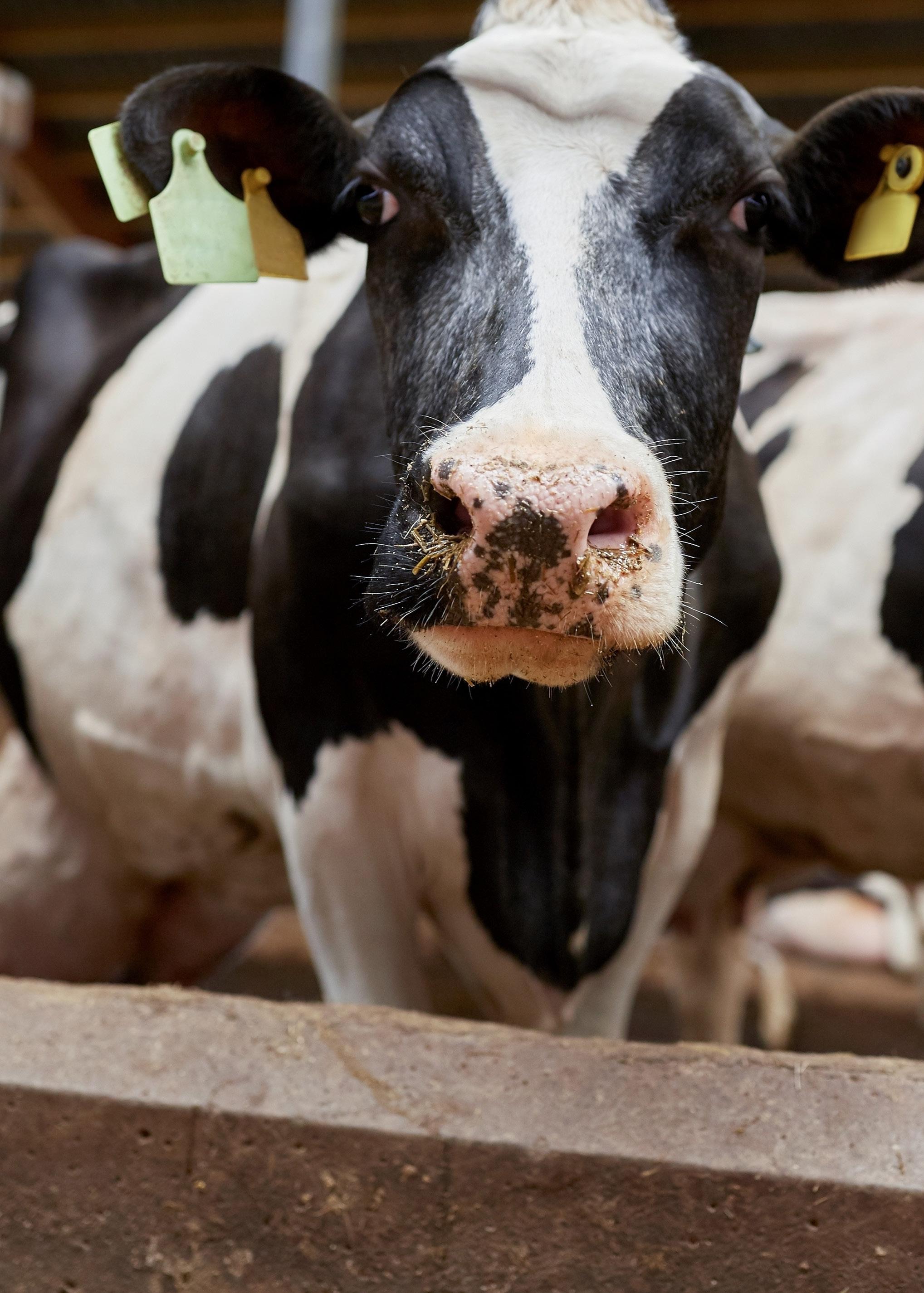
The food and farming sector is a cornerstone of the UK's economy, significantly contributing to its gross value added (GVA) and employment figures.
In 2022, the agri-food sector (excluding fishing) contributed £146.7 billion to the economy, accounting for 6.5% of the national GVA.2 Yet, the National Curriculum fails to equip young people with the knowledge and skills needed even to make a decision to move into this vital industry far less sustain and innovate within it.
Refocusing education to integrate food, farming, and sustainability would provide far-reaching economic benefits that are difficult to quantify in full. Ultimately, this contributes to both the government’s growth agenda and the creation of a resilient economy that benefits individuals, communities, and the nation as a whole. A government-commissioned review3 Professor Becky Francis confirmed that the National Curriculum is not preparing students for the modern world, lacking critical education on food systems, sustainable farming, and environmental responsibility. This omission perpetuates the public health crises, further described below, weakens workforce resilience, and undermines the UK’s ability to build a sustainable, self-sufficient future.
A strong economy relies on a skilled, healthy workforce.
• Diet-related illnesses cost the UK £74 billion annually, increasing NHS burdens and reducing workforce productivity. The Broken Plate Report 20224
• The Food, Farming & Countryside Commission (2024) found that the health-related costs attributable to the UK food system are in the region of £268 billion a year5
• Failure to equip students with green economy skills will leave the UK trailing behind in agritech, climate adaptation, and sustainable food industries. Closing the UKs Green Skills Gap report (2022)6
• The UK imports 46% of its food, exposing the country to supply chain vulnerabilities—highlighted during the COVID-19 pandemic. Strengthening domestic food production is essential for both economic and national security UK Food Security Index 20247
• Regenerative farming practices reduce greenhouse gas emissions and improve biodiversity making them a key strategy for achieving net zero emissions.8
Food and farming education is about helping our children understand the story of their food and the farming systems that produce it. It is essential that this is a central component in a new National Curriculum, one that puts sustainability thinking and practice at its heart. The future well-being of our food economy and the well-being of our next generations depends on it.
Richard Dunne, HARMONY PROJECT
2 https://www.gov.uk/government/statistics/agriculture-in-the-united-kingdom-2023/chapter-14-the-food-chain
3 https://www.gov.uk/government/groups/curriculum-and-assessment-review
4 https://foodfoundation.org.uk
5 https://ffcc.co.uk/publications/the-false-economy-of-big-food
6 https://green-alliance.org.uk/publication/closing-the-uks-green-skills-gap
7 https://www.gov.uk/government/publications/uk-food-security-index-2024
8 https://www.tandfonline.com/toc/uswc20/75/5
The UK Skills strategy outlines the government’s commitment to improving technical education and developing a workforce ready to meet future challenges, including those posed by automation and climate change.9 Skills and expertise in farming, food and the environment are all expanding areas of increasing demand and will be needed for future generations to thrive in emerging industries. By embedding knowledge of sustainable food systems and environmental focused farming practices, we are not only contributing to a healthier population but also equipping students with the tools needed to meet the growing demand for skilled jobs within the growing green sector.
There is an exponential growing demand for training and skills in sustainable farming practices, with increasing numbers of adult students attending Level 2, 3, and 4 training programmes in food, farming, and sustainability at institutions like The Apricot Centre. Embedding these skills within the school-age curriculum could help bridge the gap in understanding and awareness of careers in this sector. By incorporating food, farming, and sustainability education early on, we will foster a pipeline of future workers who are well-prepared for these industries, supporting the growing accredited programmes available in adult education, colleges, and universities, such as Royal Agricultural University, Harper Adams University, Plymouth University and Apricot Centre CIC School of Land Based Studies. The adult skills gap in the workforce is closely tied to a lack of early education and understanding of careers in these industries within the school curriculum. Although funding for adult skills and apprenticeships is projected to increase by 12% in real terms between 2019–20 and 2024–25, it remains 23% below 2009–10 levels. This underinvestment, compounded by a lack of awareness about career opportunities in food, farming, and sustainability, can lead to insufficient skill development in these areas. Furthermore, classroom-based adult education is expected to be at least 40% lower than in 2009/10, resulting in fewer opportunities for adults to gain qualifications or engage in lifelong learning.10
A student who learns about farming, food and/or sustainable practices could go on to pursue a career in agritech, sustainable food production or environmental consulting - skills that will be needed in growing green sectors across the UK economy. By failing to showcase agriculture as a career option, we are under-utilising human capital and failing to prepare young people for the rapidly evolving agricultural landscape. This presents a missed opportunity to address skill shortages in the farming industry, which could otherwise contribute to economic growth, sustainability goals, and addressing key challenges in food production and security. The benefits of practical and experiential education in this area are covered in the white paper section dedicated to education.
Diversity in the agricultural industry has the potential also to be a driver of economic growth. When a diverse range of individuals are represented in farming it helps to expand the talent pool, which is vital for an industry facing significant challenges and opportunities, such as the transition to more sustainable farming practices and the adoption of innovative technologies. It will also increase productivity and profitability by enabling a more adaptable, creative, and collaborative workforce, capable of addressing the evolving needs of consumers, markets, and the environment. Diversity isn’t just a moral or social imperative but a solid economic strategy that can unlock the full potential of the agricultural sector.
The long-term costs of poor nutrition, obesity and mental health conditions are a significant burden on the NHS as well as the economy. According to a Health and Social Care Committee report, poor diet contributes to an estimated £6 billion annual cost to the NHS. This includes the treatment of obesity, diabetes, heart disease, and mental health issues, which could be mitigated by improving the food literacy of future generations.11
The cost of living crisis, combined with food insecurity and poverty, has exacerbated educational inequalities. Children that derive from economically disadvantaged families face higher risks of malnutrition, which undermines their physical and cognitive development.12
The ongoing cost of the living crisis further entrenches food insecurity. A study by The Education Policy Institute (EPI) highlighted that families in poverty often face trade-offs between essential needs like housing and food, leading to poor dietary choices that adversely affects children’s development.13
According to The Trussell Trust, more than 2.5 million people in the UK rely on food banks, and a disproportionate number of these are children. The Institute for Fiscal Studies (IFS) notes that children from low-income households are more likely to experience poor academic performance, behavioural issues, and Special Educational Needs and Disabilities (SEND). This is particularly acute in regions where families struggle to afford nutritious meals.14
9 https://www.gov.uk/government/publications/skills-england-reportdriving-growth-and-widening-opportunities
10 https://researchbriefings.files.parliament.uk/documents/CBP-9194/ CBP-9194.pdf
11 https://carelearning.org.uk/qualifications/level-3-extended-hsc/hsccmo12/4-1-analyse-the-impact-of-poor-diet-on-health-and-wellbeing/
12 https://www.unicef.org/press-releases/1-4-children-globallylive-severe-child-food-poverty-due-inequity-conflict-and?utm_ source=chatgpt.com
13 https://epi.org.uk/wp-content/uploads/2024/11/Food-povertyreport_CORRECTED-figure5_29.11.24.pdf
14 https://www.trussell.org.uk/news-and-research/publications/report/ the-cost-of-hunger-and-hardship
By embedding food, farming and sustainability education into schools, the government will reduce future public spending on issues such as healthcare, welfare, and the economic costs of climate change. Ultimately, this contributes to both the government’s growth agenda and the creation of a resilient economy that benefits individuals, communities, and the nation as a whole.
The government is already taking steps to address longterm economic challenges through policies such as the Environment Protection Act and the Health and Social Care Levy. By teaching young people about farming, healthy eating and sustainability, we will not only provide them with skills and a workplace for the future but also reduce future health burdens e.g. from diet-related diseases, economic disadvantage and environmental costs.
By investing in a curriculum that reflects food, farming and sustainability now, the government would see both sustainable growth in the farming industry as well as savings in public spending, even within the term of this government.
The farming industry is vital to the success of the UK economy. It is however, often overlooked as a career option by schools, by teenagers and by governments. By promoting farming and agricultural careers through the curriculum, we can diversify the workforce, increase innovation in farming and ensure the long-term viability of the industry. The NFU’s diversity campaign and the need for a more inclusive workforce in agriculture will be bolstered by fostering these interests in schools.
Fostering Entrepreneurship
According to Exeter University, educating future generations to think creatively about solutions to challenges faced by the UK every day fosters the development of new businesses in agriculture, food technology, and sustainable energy, helping drive economic diversification and innovation.15
As global supply chains become more fragile and food security concerns rise, fostering an understanding of sustainable domestic food systems could make the UK less reliant on global food imports, improving food security and reducing economic vulnerabilities. Education that teaches students how to balance the need for increased food production with environmental sustainability supports them in navigating this complex issue.16
By teaching students about food, farming and sustainability, we can reduce the UK’s reliance on imported food and build more resilient, self-sufficient communities. This would ensure that local economies remain strong in the face of global crises, while also creating new jobs in local food production and agriculture.
15
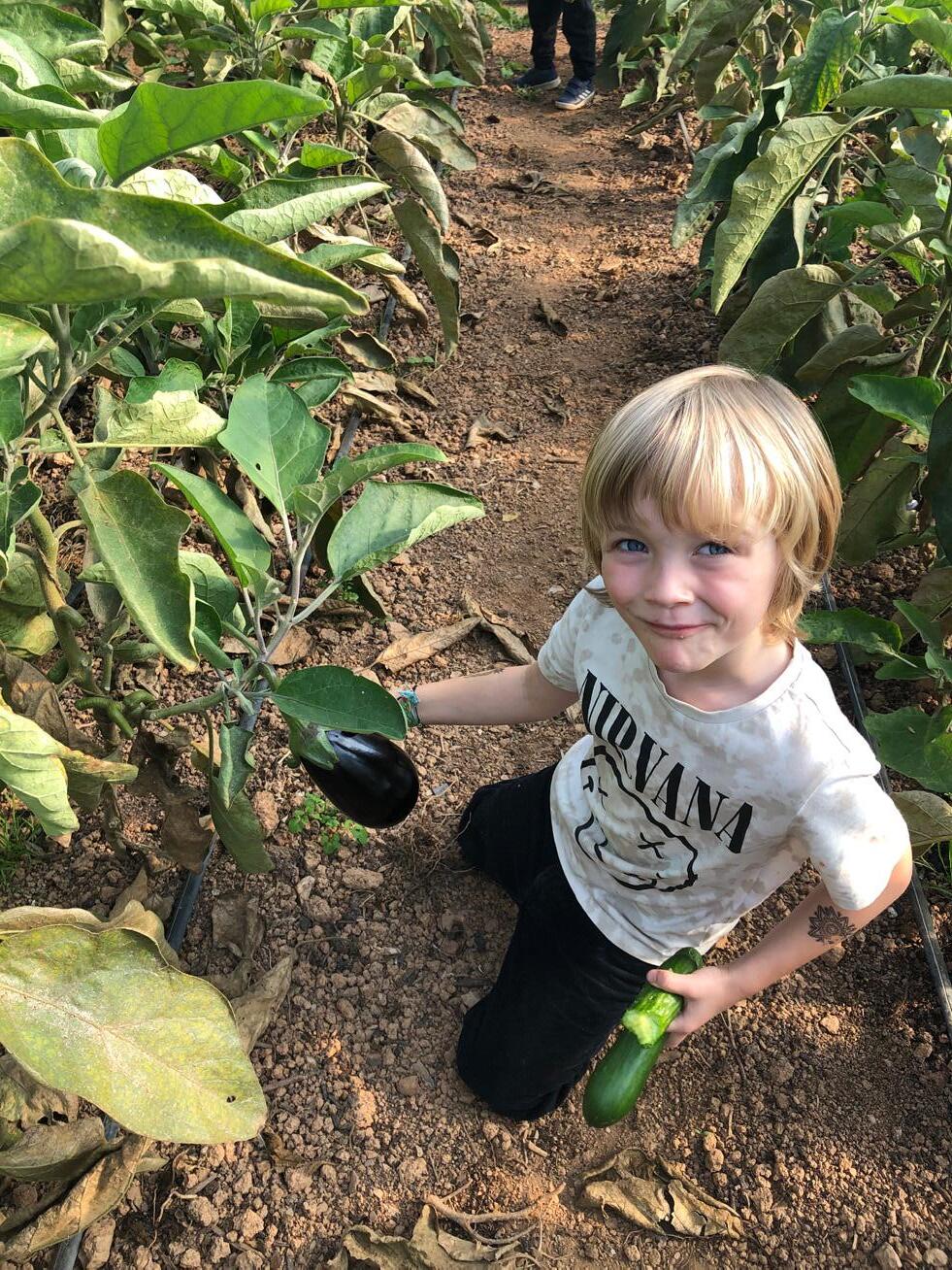
By empowering future generations with knowledge and skills in food, farming and sustainability we are creating a legacy that will not only protect, but regenerate our land, food systems and our people for generations to come. Embedding practical based learning opportunities for pupils throughout the curriculum is key to ensuring the hardest to reach, most vulnerable learners can engage and feel empowered to succeed in learning and life.
16 https://publications.parliament.uk/pa/cm5804/cmselect/cmenvaud/312/summary
17 https://www.gov.uk/government/statistics/united-kingdom-food-security-report-2021/united-kingdom-food-security-report-2021-theme-2uk-food-supply-sources
https://sustainablefoodtrust.org/news-views/from-definitions-to-solutions-can-local-food-systems-sustainably-deliver-fair-rewards-for-farmersand-access-to-quality-food-for-all/
https://www.soilassociation.org/causes-campaigns/a-ten-year-transition-to-agroecology/farming-for-change-report-10-years-to-agroecologyin-the-uk/
https://www.ellenmacarthurfoundation.org/the-big-food-redesign-challenge/overview

Education must evolve to meet the challenges of the future, aligning with the UK’s Net Zero Strategy and the Levelling Up agenda.
By integrating food, farming, and sustainability into the curriculum, we can equip young people with the skills needed for careers in sustainable food production, nature-friendly farming, and environmental innovation. The UK is facing a critical turning point — childhood obesity rates are at record levels, youth mental health is in crisis, and food insecurity continues to rise, all while climate change and economic pressures threaten the sustainability of our food system. These issues are not isolated; they are interconnected, highlighting a broader failure in our approach to education, public health, and sustainability.
This situation is not new. Nesta’s report Nourishing Britain authored by Dr. Dolly van Tulleken and Henry Dimbleby provides valuable insights into how current and future politicians can address these interconnected challenges. Drawing on the experience of senior politicians who have confronted the complexities of obesity, food, and health, it offers critical lessons on how to approach these issues effectively.18
Given the government’s recognition of the current curriculum’s shortcomings, we are presented with a once-ina-generation opportunity to reshape education. Integrating food, farming, and sustainability into the curriculum is a strategic move to address these urgent challenges, preparing future generations to build a healthier, more sustainable, and resilient society. This is not just about moral responsibility; it is about ensuring that the education system supports the long-term health, economic stability, and environmental sustainability of the nation.
Our call is to incorporate food, farming, and sustainability education into the National Curriculum by 2030. A redefined curriculum would:
• Develop learning that is based upon an understanding of and connection to the natural world.
• Focus on critical thinking, problem solving, and creativity.
• Integrate real-world applications, sustainability, and digital literacy.
• Ensure more flexibility to accommodate different learning styles.
Schools must go beyond teaching isolated subjects. Future generations need to understand how food, farming and green sector industries are interconnected, and how sustainability, when embedded into education, can drive systemic change. By teaching students about the diverse careers in agriculture, sustainability, and food systems, young people will see farming as a viable and inclusive career path, breaking down stereotypes and promoting diversity in farming communities. This education would also foster a broader understanding of the importance of inclusive policies within the agricultural sector, encouraging young people to advocate for greater representation and equal opportunities.
Ensuring the future of green skills and nature-friendly farming is key to building a resilient and regenerative food system. By embedding these practices into education, we equip future generations with the knowledge to farm in ways that restore ecosystems, protect biodiversity, and combat climate change. Teaching young people to work with nature — rather than against it — not only secures sustainable food production but also fosters a deep respect for the land, creating healthier communities and a thriving planet.
Rachel Phillips
APRICOT CENTRE CIC
18 https://www.nesta.org.uk/report/nourishing-britain
Our proposal for a revised curriculum on page 24 outlines the steps to take to integrate farming, food and sustainability fully into the curriculum in a more practical and sustainable way than has been done before.
A growing number of parents in the UK are disillusioned with the traditional education system, prompting a surge in home education. Between 2016 and 2023, the number of home-educated children increased significantly, with 111,700 children reported in elective home education (EHE) as of the autumn term of 2024. This represents a notable rise from 92,000 in the previous year. This shift reflects a broader concern from parents questioning whether the current educational framework meets the diverse needs of children, including physical health, mental well-being, and environmental awareness. Additionally, parents are dissatisfied with standardised curricula, bullying, lack of mental health support, and the system's struggles to accommodate neurodiverse students. In light of these concerns, there is a growing demand for alternatives that offer more flexibility, individualised learning, and a stronger focus on overall well-being.
One promising approach to addressing these issues is experiential, hands-on learning through food, farming, and sustainability. By integrating food and farming into the curriculum, students are offered a unique opportunity to engage with learning in a more dynamic and practical way. Activities such as school gardens, farm visits, local food system projects, and school kitchens bring the concepts of food production, sustainability, and healthy living to life in a tangible way. These experiences allow students to connect directly with the sources of their food and understand the broader impact of sustainable agriculture on both people and the planet.
Experiential learning has been shown to have a significant impact on student retention and engagement. When students participate in real-world, immersive activities, they are more likely to retain information and develop a deeper, more personal understanding of the subject matter. In addition to fostering knowledge of food systems, these hands-on experiences encourage critical thinking, problem solving, and a sense of responsibility toward the environment.
Given the growing disillusionment with traditional education, food, farming, and sustainability offer a powerful and relevant alternative that allows students to learn in a way that is engaging, meaningful, and impactful. For more information on the positive impact of farm visits on children, refer to the latest report by the Country Trust: Country Trust Impact Report 2023-2024. 19
Beyond building knowledge, these experiences foster a deep connection to nature, helping children appreciate seasonal cycles, biodiversity, and the interdependence of natural systems. Integrating school kitchens into this learning journey allows students to turn their harvested produce into meals, reinforcing the link between growing, cooking, and nutrition. While theoretical knowledge is important, practical experiences play a crucial role in engaging students and fostering meaningful connections with food, farming, and sustainability.
Farm visits and hands-on activities not only educate children about where food comes from but also provide exposure to potential career paths in agriculture, agritech, and environmental science. More than that, spending time in nature has proven benefits for mental well-being, reducing stress and increasing overall life satisfaction. Research shows that actively noticing nature—such as observing wildlife, listening to birdsong, or engaging with the natural world—has a greater impact on well-being than simply being outdoors (Richardson et al., 2021). 20
The Harmony Project in collaboration with The Sustainable Food Trust are building a network of regenerative farms who will be delivering educational visits.21 The key message of these visits is that farming can work in harmony with nature to produce healthy, sustainable food. Through the farm walk, children will see how farmers care for the soil, protect wildlife, and grow food in ways that support the environment. They will also explore why these farming methods matter and how their own food choices—eating fresh, seasonal, and naturefriendly food—can help create a healthier future for both people and the planet.
By integrating more experiential learning opportunities such as those highlighted by The Harmony Project, for example grow, pick and cook programmes, we can enhance children’s connection to food systems, support their mental health, and inspire the next generation of environmental stewards and agricultural innovators. Cooking not only teaches essential life skills but also deepens their appreciation for food, reduces waste, and encourages healthier eating habits.
Mentorship programmes and apprenticeships should also be encouraged, where students are connected with role models from diverse backgrounds in the agricultural sector, helping to reduce barriers and inspire confidence among young people to pursue agricultural careers.
19 https://www.gov.uk/government/statistics/elective-home-education-autumn-term-2024
20 Moments not Minutes: The Nature wellbeing relationshipThe Journal of wellbeing vol 11 No1. 2021
21 https://www.theharmonyproject.org.uk/practice/sustainability-themes
By marching forward under the banner of sustainability we are, in effect, continuing to hamper ourselves by not accepting a challenging enough goal. I am not against the word sustainable, rather I favor regenerative agriculture.
Robert Rodale
Sustainability is no longer a niche topic, it’s at the heart of many industries, including food systems and farming. By embedding sustainable systems thinking into education, we know that we can ensure that future generations are equipped with the tools to make informed decisions about the environment, ethics, and societal well-being. Sustainability is however not enough in isolation. Even as this white paper is being written the world is shifting and there is increasing focus on regeneration - to regenerate all systems, soil up, to benefit the health of our communities.
The Earth Logic report advocates for a systemic shift towards regenerative systems thinking, challenging us to rethink the status quo, particularly in industries like food and fashion. It calls for a transition to circular principles, where waste is minimised, resources are regenerated, and value is created for both people and the planet. Similarly, the Ellen MacArthur Foundation promotes the circular economy, redesigning systems to be restorative by default rather than extractive. By integrating these principles into education, we can cultivate a mindset that prioritises long-term sustainability, ensuring that future generations are not only aware of these challenges but also empowered to drive meaningful change.
By promoting regenerative, nature-friendly farming practices, students learn to work in harmony with the environment, improving soil health, biodiversity, and long-term agricultural productivity. Encouraging students with a strong foundation in food, farming and sustainability to pursue careers in smallscale farming, green jobs, and community-led food initiatives helps create resilient food systems while strengthening the local economy.
To create a healthier world for our children, we must regenerate our education system—one that shares knowledge in harmony with nature and breathes life into both students and teachers.
Claire Mackenzie, Documentary Producer
SIX INCHES OF SOIL


Obesity and its consequences constitute a public emergency that represents a ticking time bomb for the nation's health, well-being and finances. This emergency is primarily driven by over-consumption of unhealthy foods.
The United Kingdom is at a critical juncture, facing a public health and educational emergency characterised by rising childhood obesity and increasing prevalence of type 2 diabetes among young people. These issues are compounded by inadequate education on food, nutrition and farming particularly; areas essential for fostering public health, environmental stewardship, and economic resilience.23
Implementing this reform will yield substantial savings for the National Health Service, improve mental health metrics and support the UK's commitments to global environmental initiatives, all while equipping future generations with the necessary tools for a prosperous and sustainable society.
22 https://committees.parliament.uk/committee/698/food-diet-andobesity-committee
23 https://www.gov.uk/government/publications/childhoodobesity-a-plan-for-action/childhood-obesity-a-plan-for-action
The United Kingdom is at a critical juncture, facing a public health and educational emergency characterised by rising childhood obesity and increasing prevalence of type 2 diabetes among young people. These issues are compounded by inadequate education on food, nutrition and farming particularly; areas essential for fostering public health, environmental stewardship, and economic resilience.24
Implementing this reform will yield substantial savings for the National Health Service, improve mental health metrics and support the UK's commitments to global environmental initiatives, all while equipping future generations with the necessary tools for a prosperous and sustainable society.
Childhood Obesity is a recognised epidemic in the Western World and the UK is no exception. Recent data indicates that approximately 15% of children aged 2 to 15 in England were classified as obese in 2022, mirroring figures from 2019. Specifically, obesity rates stood at 12% for children aged 2 to 10 and escalated to 19% among those aged 11 to 15.25
The increase in childhood obesity rates is a direct consequence of poor diet and sedentary lifestyles. Studies from NHS Digital indicate that 1 in 5 children are overweight or obese by the time they start school. Obesity and its consequences constitute a public health emergency that represents a ticking time bomb for the nation’s health, wellbeing and finances.26 This emergency is primarily driven by over-consumption of unhealthy foods.
The prevalence of obesity in children in England is more than twice as high among children living in the most deprived areas than those living in the least deprived areas.27 Children living with obesity are approximately five times more likely to be living with obesity in adulthood, and more likely in turn to be parents living with obesity. Introducing food and farming education would help to address this by teaching students the importance of healthy eating and active living, which could reduce the long-term NHS burden. The Food Strategy already calls for dietary improvements, but without education in schools, future healthcare costs will continue to soar.28
Embedding food and farming education into the curriculum would empower children with critical food literacy skills, helping them understand the link between nutrition, health, and well-being. A lack of education in this area contributes to poor dietary choices, driving obesity-related illnesses and increasing NHS spending.29
Historically rare in younger populations, type 2 diabetes is now an alarming and growing concern among children and adolescents. According to Diabetes UK, as of 2021, nearly 1,600 individuals under 25 in England were living with the condition — a figure that continues to rise.30 This surge is primarily driven by poor dietary habits and increasingly sedentary lifestyles. However, at the heart of this issue lies a deeper problem: a lack of food literacy.
Food literacy is the ability to understand, source, prepare, and consume nutritious food and is a fundamental yet overlooked tool in preventing type 2 diabetes. Without food literacy, children and families often default to processed, convenient, and nutritionally inadequate food choices. A lack of knowledge about food labels, portion sizes, and the impact of specific ingredients exacerbates poor dietary patterns.
Key aspects of food literacy that directly influence diabetes prevention are all included as part of the curriculum reforms that this white paper asks for. These include:
• Nutritional Awareness – Understanding macronutrients (carbohydrates, fats, proteins) and their role in metabolism allows individuals to make informed food choices that stabilise blood sugar levels.
• Cooking and Meal Preparation Skills – The ability to prepare whole-food meals reduces reliance on processed convenience foods, which are often high in sugar and unhealthy fats.
• Label Reading and Ingredient Awareness – Educating children and families on how to identify hidden sugars, artificial additives, and unhealthy fats empowers them to choose nutrient-dense foods over processed alternatives.
• Connection to Food Systems & Farming – Learning where food comes from, how it’s grown, and how it affects health encourages a shift toward whole, minimally processed foods, supporting long-term metabolic health. This can be done by children being on farms. Farm visits bring well-being through their connection with nature but also create ‘seeing is believing’ experiences that help bring the curriculum to life.
24 https://www.gov.uk/government/collections/national-diet-and-nutrition-survey
25 https://digital.nhs.uk/data-and-information/publications/statistical/health-survey-for-england/2022-part-2/childrens-overweight-and-obesity
26 https://digital.nhs.uk/data-and-information/publications/statistical/health-survey-for-england/2022-part-2/childrens-overweight-and-obesity
27 https://commonslibrary.parliament.uk/research-briefings
28 https://www.nationalfoodstrategy.org
29 https://digital.nhs.uk/data-and-information/publications/statistical/national-child-measurement-programme/2023-24-school-year
30 https://www.diabetes.org.uk/about-us/news-and-views/children-type-2
Food literacy is the start of the journey but, alone, it is not enough. If individuals lack access to fresh, nutritious foods. Many communities, particularly in lower-income areas, face "food deserts," where fast food and processed snacks are more readily available than fresh produce. In contrast, “food swamps” describe environments where highly processed, calorie-dense foods dominate the market. Without systemic changes in food availability, education alone cannot fully combat the diabetes crisis.31
Schools and policymakers play a crucial role in reshaping food environments by:
• Integrating Food and Nutrition Education into the Curriculum – Embedding food literacy into primary and secondary education ensures that children develop lifelong skills and expectations to manage their diet and health.
• Improving School Meal Programmes – Ensuring that school lunches prioritise whole foods, fibre-rich ingredients, and balanced meals can help prevent diabetes risk factors early.
• Supporting Local and Regenerative Agriculture –Strengthening connections between schools and local farmers increases access to fresh, seasonal produce while promoting sustainable farming practices.
The rise in type 2 diabetes among young people has severe economic and healthcare consequences. Managing diabetes requires lifelong medical intervention, including insulin therapy, glucose monitoring, and increased healthcare utilisation. Preventative strategies centred on food literacy will:
• Reduce the financial burden on the NHS and public health systems.
• Improve workforce productivity by decreasing diabetesrelated absenteeism and health complications.
• Enhance overall public health outcomes by reducing comorbidities such as cardiovascular disease, obesity, and metabolic disorders.
Mental health is a growing concern in the UK, with significant costs to businesses in terms of lost productivity, and to the government in terms of public health and welfare. In the 2022 review of The Economic and Social Costs of Mental Ill Health the Centre for Mental Health analysis reported that the cost of mental ill health was £300 billion.32 Beyond physical health implications, diets rich in ultra-processed foods disturb the body’s natural ecosystem and biome and are associated with mental health challenges, including anxiety, depression and diminished cognitive function.33 Such nutritional deficiencies can impede children's learning capabilities, academic performance, and overall emotional resilience. Teaching children the relationship between food, the environment, and mental well-being can reduce stress, anxiety, and depression, leading to improved productivity as these individuals enter the workforce.
The Economic and Social Costs of Mental Ill Health the Centre for Mental Health 34 broke these down into these three major areas:
• Economic costs of £110 billion: Losses to the economy due to mental ill health. These include the business costs of sickness absence and ‘presenteeism’ at work, as well as staff turnover and unemployment among people with mental ill health.
• Human costs of £130 billion: The value, expressed in monetary terms, of reduced quality of life and premature mortality among people living with mental health
31 https://www.medicalnewstoday.com/articles/what-are-food-desert
32 https://www.centreformentalhealth.org.uk/publications/the-economic-and-social-costs-of-mental-ill-health
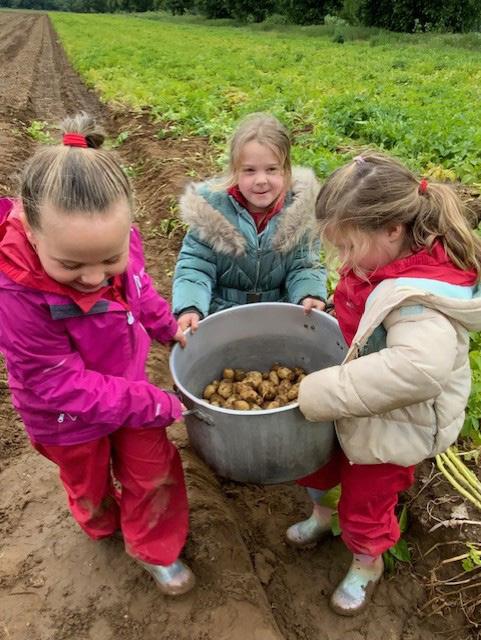
33 Consumption of Ultra Processed Food and Risk of Depression Samuthpongtorn, C et al (2022) JAMA NETWORK OPEN Volume 6 Issue 9
34 https://www.centreformentalhealth.org.uk/publications/the-economic-and-social-costs-of-mental-ill-health
The proposed investment in embedding food, farming, and sustainability education into the National Curriculum can lead to significant long-term economic savings. These savings primarily come from reducing mental health-related costs and obesityrelated healthcare expenditures, both of which place a substantial burden on the UK economy. Below is a breakdown of how these savings can be achieved:
Mental health issues cost the UK economy a staggering £300 billion annually. This includes costs from absenteeism, presenteeism, lost productivity, and healthcare expenses. Studies have shown that investing in mental health education, including programmes that promote well-being and resilience, can reduce these costs over time. For example, the World Health Organization (WHO)35 estimates that for every £1 invested in mental health promotion, there is a return of up to £4.
By integrating food, farming, and sustainability education, which can contribute to better mental health, we estimate that such initiatives could lead to a 5-10% reduction in mental health-related costs.
Embedding food and sustainability education could save £15 billion to £30 billion over the next 10 years in mental health-related costs alone.
Obesity costs the UK NHS approximately £6.5 billion per year.36 When considering the broader societal costs, including lost productivity, the total costs associated with obesity amount to £98 billion annually. A 10-15% reduction in these costs could be achieved through early intervention and education, which would foster healthier lifestyles and reduce obesity rates.
By promoting healthy eating habits and food literacy in schools, we could save £6.5 billion over the next 10 years by reducing obesity-related healthcare costs.
35 https://www.linkedin.com/pulse/world-health-organization-estimates-every-1-invested-mental-vanstine-7ezde
36 https://www.frontier-economics.com/uk/en/news-and-insights/articles/article-i9130-the-annual-social-cost-of-obesity-in-the-/
37 https://www.thelancet.com/journals/lanchi/article/PIIS2352-4642(20)30316-3/fulltext
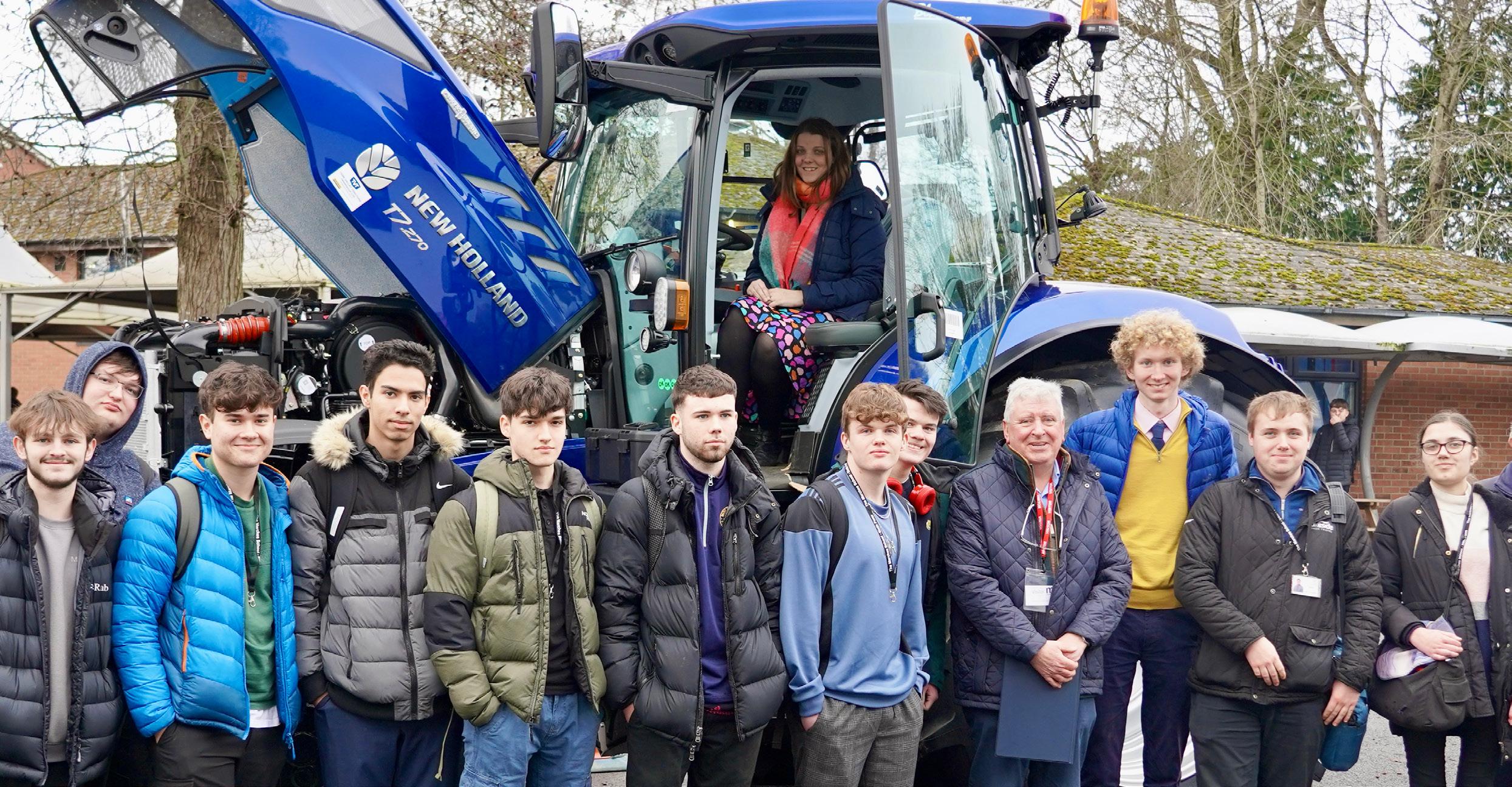
Individuals aged 10 to 19 constitute approximately 12% of the UK's total population, and extending this range to include those up to 24 years old increases this figure to 18%. Given this substantial demographic, prioritising their health and educational outcomes is imperative for the nation's future well-being.38
The convergence of escalating childhood obesity, rising type 2 diabetes cases among youth, and the clear link between diet and mental health underscores the urgent need for educational reform. Embedding comprehensive food, farming, and sustainability education within the National Curriculum is a strategic move toward fostering a healthier, more informed, and resilient generation.39
12% of UK's total population
Malnutrition and Its Impact on Development
Cross-national research from the Health Behaviour in School-aged Children (HBSC) study supports the theory that many SEND diagnoses are linked to malnutrition during key developmental stages. The rise in learning difficulties, behavioural problems, and cognitive delays in children is often connected to deficiencies in essential nutrients. Poor diet affects both cognitive development and emotional regulation which in turn leads to increased diagnosis of SEND, particularly in older children from disadvantaged backgrounds. We know that children from disadvantaged backgrounds are more likely to eat highly processed foods leading to behavioural challenges.40
Stunted Growth and Cognitive Delays
In the UK, studies by University College London (UCL) have found that malnutrition during early childhood can result in developmental delays, affecting cognitive abilities and emotional regulation, which are often misdiagnosed as SEND.
Iron, Vitamin D, and Omega-3 Deficiency
Research from the Institute for Fiscal Studies (IFS) and The Lancet reveals that deficiencies in essential nutrients such as iron, vitamin D, and Omega-3 fatty acids directly impact school performance and behavioural issues.41 For example, studies have shown that children with low iron levels often suffer from reduced attention span and hyperactivity, contributing to poor academic outcomes.
Ages 10 - 19 Ages 10-19
Increased Opportunities for Pupils with SEND SEND education is in crisis, with an increasing amount of needs arising, school cohorts changing significantly and a lack of specialist provision meaning that mainstream schools are facing increased challenges in supporting needs. Since reforms in the Children and Families Act of 2014 the number of children and young people with EHCP has risen by 140%.42 Research shows that including practical and sensory based exploratory learning opportunities improves engagement and progress for pupils with SEND.
Embedding outdoor based practical learning in the curriculum will enhance ordinarily available inclusive provision (OAIP) available in schools, meeting more learner’s needs within mainstream school settings and thus reducing funding needs or additional funding costs to access alternative provision, resulting in improved outcomes for children and young people.
There is nothing more important than the education of our future generations; food, farming and sustainability are central to that.
Andrew Goff
INTERACTIVE OPPORTUNITIES
Embedding food, regenerative farming, and sustainability into the National Curriculum is vital for creating a future where both people and the planet thrive. By teaching children how to grow food in harmony with nature, we not only nurture biodiversity and soil health but also foster resilience, well-being, and a deep connection to the land. Hands-on learning in sustainable agriculture equips young minds with the skills and mindset needed to tackle the climate crisis, support mental health, and build a regenerative future.
38 https://www.ons.gov.uk/peoplepopulationandcommunity/ populationandmigration/populationestimates/bulletins/ annualmidyearpopulationestimates/mid2023
39 https://foodfoundation.org.uk/publication/neglected-generationreversing-decline-childrens-health
40 https://hbsc.org/publications/reports/a-focus-on-adolescent-socialcontexts-in-europe-central-asia-and-canada-volume-7/
41 https://www.thelancet.com/journals/lanchi/article/PIIS23524642(20)30316-3/fulltext
42 https://www.legislation.gov.uk/ukpga/2014/6/contents

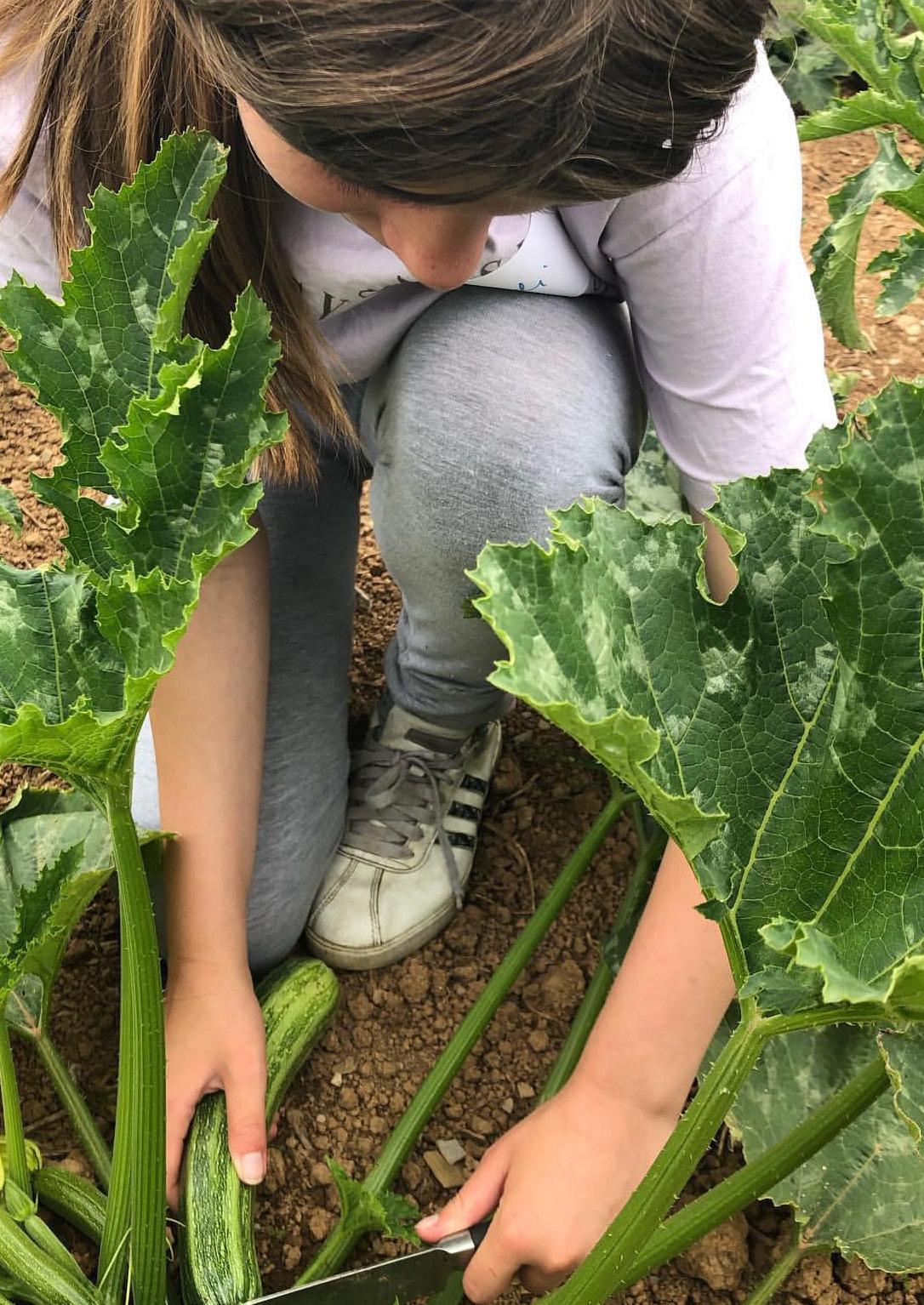
The government has committed to net zero emissions by 2050, which requires extensive changes across sectors, including agriculture, transport and energy. The Green Finance Institute and other financial mechanisms are supporting businesses to transition towards greener practices.43
Embedding sustainability education can help prepare a new generation to work in the green economy and meet the skills demands of industries that will play a significant role in achieving the net zero target. Food, farming and sustainability are areas where education could directly fuel green finance initiatives by training the next generation of workers in sustainable farming techniques, food systems, and carbon reducing practices.
The government’s emphasis on green finance and the push towards sustainable industries is reflected in public investments, such as subsidies for sustainable farming, ecofriendly businesses, and the Environmental Land Management (ELM) scheme. By incorporating sustainability education into schools, students can be equipped with the skills needed to support this transition, either by working in sustainable farming, agritech, or businesses that align with the green economy.
All of this links into the Government Spending Forecasts
1. Investment in Green Industries: Government spending on green industries could lead to new tax revenues and economic growth. Encouraging the next generation to pursue careers in green sectors would not only create a more skilled workforce but would attract investment into industries critical to the UK’s green transition, such as renewable energy and sustainable food production. This would support the government’s efforts to stimulate economic growth while also meeting its environmental goals.44
2. Job Creation in Green Sectors: As more young people are equipped with green skills, we would see job creation in industries such as sustainable agriculture, food innovation, and environmental management. This would reduce unemployment and help fill gaps in critical sectors, while also contributing to economic growth.45
3. Sustainability Drives Long-Term Economic Stability: By preparing the next generation to lead in sustainable industries, we ensure that the UK can remain competitive in the global economy, which is increasingly focused on green technologies and sustainability. The government would see long-term economic returns on its investment in education, as the future workforce would be better equipped to drive growth in emerging sectors.46
4. Educational costs: Currently, spending deficits for SEND in England are growing, and, according to research, over half of councils in England have warned they will become insolvent when a temporary measure to keep deficits relating to SEND off their balance sheets ends next year. Increasing practical and multi-pedagogical learning opportunities for pupils in mainstream school settings will lead to a reduction in costs for funding alternative education for SEND/high need SEND pupils in the UK, saving councils money. 47/48
43 https://www.gov.uk/government/publications/green-finance-strategy/mobilising-green-investment-2023-green-finance-strategy
44 https://www.gov.uk/government/consultations/invest-2035-the-uks-modern-industrial-strategy/invest-2035-the-uks-modern-industrial-strategy
45 https://researchbriefings.files.parliament.uk/documents/POST-PN-0711/POST-PN-0711.pdf
46 https://www.csap.cam.ac.uk/news/article-supporting-green-investment-uk-really-growth-straT/
47 https://www.local.gov.uk/about/news/half-councils-warn-insolvency-over-special-needs-spending#:~:text=Over%20half%20of%20councils%20 that,Local%20 Government%20Association%20 has%20found
48 https://ifs.org.uk/publications/spending-special-educational-needs-england-something-has-change
The growing body of scientific evidence around regenerative agriculture provides a compelling evidence-based argument for embedding food, and farming and sustainability education into the National Curriculum. This evidence not only supports the health, environmental, and economic benefits of regenerative agriculture but also aligns with the wider objectives of government policies focused on environmental sustainability and public health.49
Regenerative agriculture focuses on practices that restore and enhance soil health, improve biodiversity, sequester carbon, improve river water quality and reduce the overall environmental impact of farming. These practices are particularly relevant in the context of climate change, as they contribute to carbon sequestration (reducing atmospheric CO2 ), better water retention, and lower use of chemical fertilisers and pesticides.
Numerous studies show that regenerative agricultural practices can improve soil health, increase yields over time, and reduce the carbon footprint of food production. For example, a report from the Rodale Institute highlights that regenerative agriculture can sequester up to 322 billion tonnes of CO2 per year globally, helping mitigate climate change.50
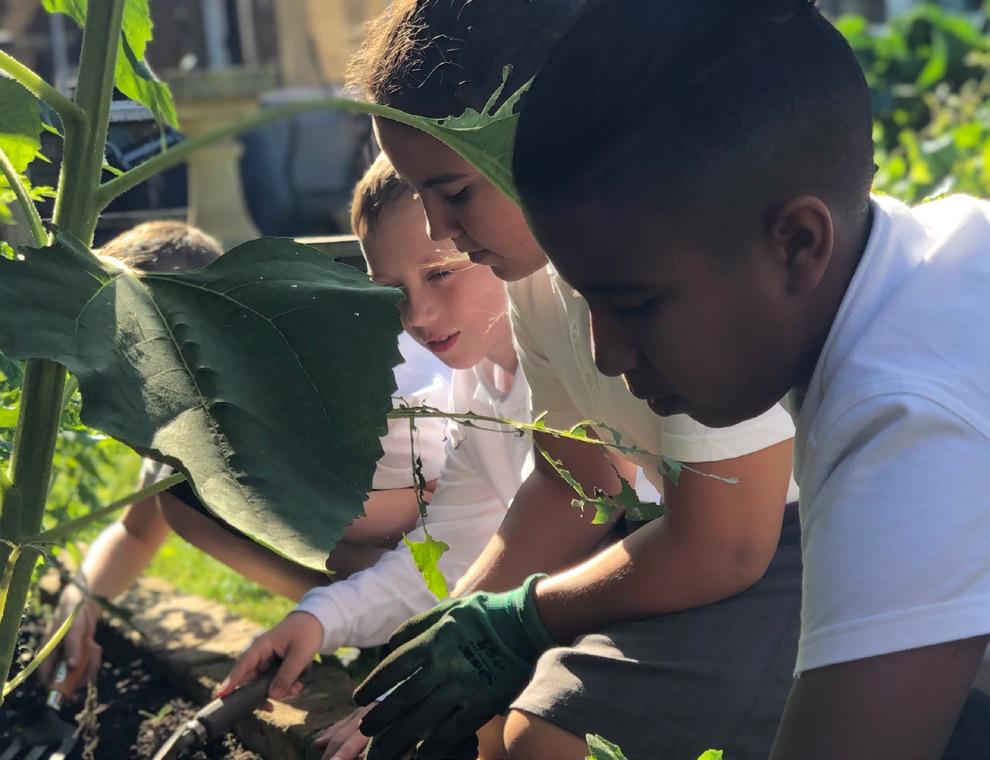
Prevention begins with education. By integrating food, farming and sustainability education into early learning, we can support a future where non-communicable diseases can be significantly reduced. When children understand the story behind their food, they develop a deeper connection to what they eat, making mindful and sustainable choices that benefit both their health and the planet.
Claire King THE NAT/NUTRI-KIT
The rise of regenerative agriculture opens up new economic opportunities, particularly in the context of the green economy and sustainable jobs. The UK government’s focus on green jobs can be supported by an educated workforce skilled in regenerative agriculture practices.51
Reports from the Green Alliance and the Environmental Defense Fund highlight that regenerative agriculture can create new jobs in sustainable farming, food production, and environmental management.52 It also helps make farming more economically viable in the long term by improving yields and reducing dependency on costly chemical inputs. By embedding these practices into education, students could be prepared for careers in the growing field of regenerative agriculture.
49 https://rodaleinstitute.org/education/resources/regenerative-agriculture-and-the-soil-carbon-solution/
50 https://rodaleinstitute.org/education/resources/regenerative-agriculture-and-the-soil-carbon-solution/
51 https://www.gov.uk/government/groups/green-jobs-taskforce
52 https://www.edf.org/media/farmers-business-network-and-environmental-defense-fund-announce-major-expansion-1
Integrating regenerative agriculture into education aligns with key government policies and commitments as follows:
• The UK’s 25-Year Environment Plan (2018)53 and the Environment Bill emphasise the importance of sustainable practices and environmental protection.54 Regenerative agriculture could be a key driver in meeting these environmental goals.
• The National Food Strategy and Net Zero policies aim to reduce emissions from food production, and regenerative farming is a solution that could directly contribute to these targets while aligning with the Government’s current approach to reducing the burden on the NHS by transitioning to ‘preventative’ health care.55
• The Agriculture Act 2020 emphasises the need for sustainable farming practices that enhance soil health and biodiversity - both of which are central to regenerative agriculture.56
By educating students on these interconnected issues, we can help them understand the broader policy context and the role they can play.
Food and farming have the power to turn around people and planetary health. Schools are our vehicle for change. By regenerating skills and knowledge that we’re losing, not least where our food comes from and how to produce it in harmony with nature, we can turn our current health crisis around. Now is the time to embed this within education and protect all our futures as well as our planet.
Dr Lucy Williamson, Registered Nutritionist THE GUT PROJECT
53 https://www.gov.uk/government/publications/25-year-environment-plan
54 https://www.gov.uk/government/publications/environment-bill-2020
55 https://www.nationalfoodstrategy.org
56 https://commonslibrary.parliament.uk/research-briefings/cbp-8702/

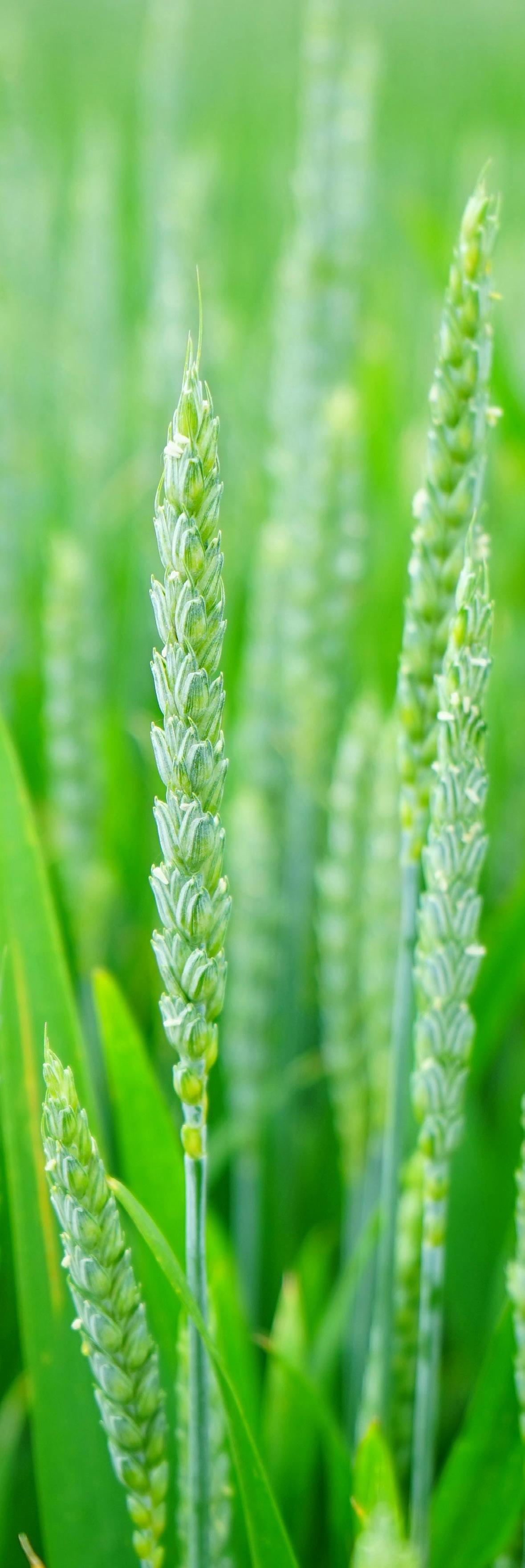
This white paper outlines above the risks to the UK economy, people and its environment of carrying on with the current trajectory of substantially ignoring farming, food and sustainability in the educational curriculum. To mitigate these risks and secure the benefits described above the following policy recommendations are required:
1. Mandatory integration of food, farming and sustainability into current education models.
2. Investment into school resources and teacher training and guidance.
3. Roll out with the new proposed government curriculum.
4. Accountability from the schools to deliver the new curriculum.
5. Measuring the savings and benefits for the future.
Rather than creating standalone subjects, integrating food, farming and sustainability into existing subjects allows for an interdisciplinary approach. This reduces the burden on teachers while offering students practical, real-world knowledge that ties into multiple areas of learning. Every year group in primary education has a unit on plants and living things. By linking learning about the natural world, food systems and sustainable practices to these subjects value can be added to existing areas of the curriculum.
• Science: Students can study sustainable agriculture, food chains, biodiversity, and the science behind climate change. Data from the Institute for Fiscal Studies (IFS) shows that over the past few decades, funding for science and technology education has stagnated, and integrating sustainability into the curriculum could make these subjects more relevant and engaging. This can drive student interest and help fill gaps in the green economy workforce, a growing sector as seen in government policies like the Green Finance Initiative.57
• Geography: Through geography, students can focus on topics like global food supply chains, the impact of deforestation on farming in the UK, and climate adaptation strategies. Learning geography through the lens of food and farming is an intrinsic way of integrating with the existing curriculum model. Through this approach children can learn key skills from the NC while deepening their understanding of the world around them. For example when learning about wheat production children learn to locate where wheat production began and spread on the map, they learn the climate factors necessary for growth and they learn how the production of this crop is linked to the well-being of the planet etc. Our recommendation would be to add a topic on this to the GCSE curriculum.
• PHSE (Personal, Social and Health Education): Sustainability, food security, and mental health can be integrated into these lessons. Research shows a strong link between dietary habits and mental health, and with a growing rise in mental health-related issues among children and adolescents, this is an important area to address.
• Maths: Agricultural data analysis and sustainability metrics (e.g. carbon footprint calculations or yield projections) can be introduced into maths lessons, improving numeracy skills while tying them directly to global challenges. Engaging in hands-on activities, such as calculating average weights of produce, enhancing practical mathematical skills along with handling produce.
• History: This subject provides opportunities for returning to learning and deepening knowledge acquisition. Learning through history will help students to understand the complexity of people’s lives, the process of change, the diversity of societies and relationships between different groups, as well as their own identity and the challenges of our time.
• English: A rich literature spine with core texts, in all genres, which focus on food, farming and sustainability can provide the platform for deepening understanding and act as a model texts for pupils to communicate their knowledge and learning. For example, producing newspaper reports, creating recipes, interviewing agricultural experts, interpreting and reporting on real-life data; bringing meaning, purpose and power to their written and oral communication.
• Food Science and D&T: Bringing together the agricultural science and nutritional science to lead learning in food processing and food safety. Skilled, passionate educators ensure local, seasonal produce forms part of the teaching and learning experience.
• IT, Computer Science, Engineering and Robotics: The opportunities to embed food production, farming and sustainability into these subject areas are limitless and offer up exciting real-world contexts for students, and teachers, to focus their creative problem solving on solutions for a positive sustainable future. From 3D visualisation, mapping and GIS data through to image sensing, robotics and AI automation, there are huge opportunities to engage, inspire and motivate a highly skilled future workforce.
Making it part of the National Curriculum ensures that it’s not up to schools to decide whether to adopt it all - all schools would be required to teach it, making it a standard part of the education systems. This will prevent schools opting out and ensure that the reform reaches every student equally.
What we need is regeneration for the next generation. The children in our schools will be the children who steward the planet into the future. By putting this kind of knowledge at the heart of the curriculum experience we will be equipping them with the skills to do just that.
Georgina Webber
THE ELLIOT FOUNDATION ACADEMIES TRUST
57 https://ifs.org.uk/news/schools-and-colleges-facing-another-roundbelt-tightening-years-spending-review
A major barrier for teachers and schools is the lack of resources and training for new subjects. In order to make this education feasible for schools the government needs to provide extensive resources and professional development. According to the IFS’s report titled “Teacher Pay and Retention in England” (published July 2023), teacher workload is a critical issue, with 73% of teachers considering leaving the profession due to stress and heavy workloads. To prevent further strain on teaching staff while integrating sustainability, the government should focus on:
• Professional Development in Sustainability: By offering targeted training on sustainability-related topics, the government can empower teachers without overwhelming them. The IFS reports that teacher workload is one of the biggest contributing factors to stress, and providing professional development in this area would ensure teachers are prepared but not overburdened.59
• Cross-Curricular Collaboration: Allowing teachers from different subjects (science, geography, PSHE, etc.) to collaborate on delivering sustainability-related lessons will share the load and foster innovation. This is a key element to making integration seamless across the school system.
• Supporting Teacher Through Partnerships: Partnering with local providers such as NGOs, farms, environmental organisations, and sustainability experts can provide teachers with ready-made resources such as workshops, field trips, and interactive learning experiences, thereby reducing the pressure on teachers to create content from scratch. Examples of interventions such as this are available with organisations such as Cultivating Change donating seeds and activating gardens and growing food within schools. Another example is the Alexander Rose Charity 2024 pilot: exploring produce on prescription.60 It’s results have had a profound impact on dietary and health inequalities in a short space of time, while restoring community pride and a vibrant local food economy- results include:
• 80% of participants now eating five-a-day.
• 9 in 10 experiencing improved health and well-being.
• 7 in 10 experiencing significant reductions in blood pressure as recorded by GPs and nurses.
• 40% reduction in GP visits.
• £222k invested in the local economy since the project began.
• Curriculum Guides and Tookits: Develop clear, easy-tofollow curriculum guidelines for teachers, showing how to integrate food, farming, and sustainability topics into their existing lessons. This would reduce the perceived burden on teachers and make it easier to implement.
The use of technology and industry partnerships can significantly ease the burden on teachers while enriching the students’ learning experience:
• Careers Education: Sharing the career opportunities in food, farming and sustainability based roles can support schools to efficiently fulfil their school’s Gatsby Benchmarks and bring real-world context to students, their teachers and connected communities.61
• Digital Content: Virtual learning environments, gamified apps, and online resources are now commonplace. Organising established tools and augmenting with new tools sustainability tools can engage students and provide teachers with structured resources so helping with teacher workload. According to the IFS, digital learning has proven effective in increasing student engagement and improving retention rates.62
• Industry Partnerships: Collaboration with organisations focused on sustainability, local food producers, and environmental agencies can bring real-world experience into the classroom. This would also alleviate teacher workload and reduce the cost of content subscription services.

58 https://ifs.org.uk/publications/annual-report-education-spendingengland-2023
59 https://ifs.org.uk/publications/annual-report-education-spendingengland-2023
60 https://www.alexandrarose.org.uk/report-exploring-the-power-offruit-veg-on-prescription
61 https://www.gatsbybenchmarks.org.uk/updated-benchmarks/
62 https://www.ifs.org.uk/
4. Start Small but Ensure Full Integration in Key Stages
Rather than trying to roll out sustainability education to every year group and subject immediately, it’s more realistic to start with key stages and gradually increase scope:
• EYFS (ages 3-5): Introduce linked sustainability themes through the Understanding the World strand where children learn to understand their physical world and community
• Key Stages 1, 2 & 3 (ages 5-14): Introduce sustainability principles and food system learning opportunities linked across the curriculum with a real focus on science, geography, and PSHE as a core part of the curriculum. This allows younger students to develop an early understanding of food systems and sustainability.
• Key Stage 4 (ages 14-16): Provide opportunities for students to dive deeper into sustainability, regenerative agriculture, and food systems through elective subjects like environmental science, agriculture, or sustainable business.
• Key Stage 5 (ages 16-18): Offer advanced modules or vocational courses in sustainable farming, green economy and food policy. This aligns with the skills needed for emerging jobs in the sustainability sector and the green economy.
By initially focusing on core stages (Key Stage 2 and 3), a foundation that eventually supports more specialised content at later stages, creating a step-by-step approach to full integration across the education system.
5. Global Comparisons and World-class examples
It is important to look to other examples of successful models of curriculum. Finland and New Zealand have embedded sustainability education into their curricula, fostering higher environmental literacy and resilience.
In Finland, sustainability education is a core component of the National Curriculum. Students are introduced to topics such as climate change, regenerative agriculture, and the circular economy from an early age. This early exposure cultivates a population that is more informed and proactive regarding environmental issues.63

Similarly, New Zealand emphasises 'Education for Sustainability' (EfS), aiming to equip students with the values, knowledge, and skills necessary to take meaningful action for a thriving world. This approach empowers learning communities to think critically about their environmental impact and instils a sense of responsibility toward ecological stewardship.64
In contrast, the UK currently ranks 15th globally in education standards and risks further decline without systemic reform. Integrating sustainability into the curriculum offers a pathway to elevate educational outcomes and equip students with the necessary skills for a sustainable future. By adopting similar strategies, the UK can enhance its educational framework, preparing students to address environmental challenges effectively.
63 https://www.ecoedhub.com
64 https://nzcurriculum.tki.org.nz/Curriculum-resources/Education-for-sustainability?utm_source=chatgpt.com

We have had the privilege of working with the very best of partners and experts in this area to bring this white paper together. We want to thank them for their contribution and acknowledge them here. These are people and organisations are doing what they can to bring this dream to a reality. If the UK curriculum brought these people together to deliver the changes requested the impact would be life changing for future generations.
• Six Inches of Soil: a UK documentary and impact campaign championing the regeneration of soil, farming and communities. A team of filmmakers, communicators and environmentalists all of them advocate for a healthier food and farming system.
• The Harmony Project: A charity dedicated to transforming education by integrating nature's principles into teaching and learning. By collaborating with educators, they develop curricula that foster a deep understanding of and connection to the natural world, equipping students with the skills needed to address environmental and social challenges.
• Nutri-Kit: Founded in 2020 by Claire King, The Nutrition Advisory Team brings together education and health professionals to support a whole school approach to health. Nutri-Kit is an innovative education toolkit integrating food systems thinking, health and sustainability. The toolkit offers multi-modal interdisciplinary learning resources.
• The Gut Project: Dr Lucy Williamson Registered Nutritionist (former Vet) evidence-based communications on Agroecology and nutrient-rich foods for whole-body health. Collaborating across the food system — regenerative farming, the public and health practitioners.
• Rachel Phillips: The Apricot Centre CIC: A regenerative farm based in Devon. In 2021 developed the only accredited organic regenerative agriculture in the UK courses offering over 200 new entrant and transitioning farmers FREE training in nature-friendly farming programmes. Rachel Phillips is Managing Direct and Head of Education.
• Nature Premium: The Nature Premium is led by a diverse group of volunteers with a common passion for the benefits of outdoor education. Nature Premium is calling for the government to introduce a Nature Premium into schools to guarantee regular time in nature for ALL children and young people, with additional funding and support for those who need it most.
• Interactive Opportunities Limited: Founded by former teacher and edtech entrepreneur Andrew Goff connects businesses, education and the 3rd sector; focused on creating positive social value, positive impact for people and supporting sustainable futures for all.
• Amy Arnold: Headteacher, Barnham CEVC Primary School, Suffolk/Steering group member of Nature Premium. Farming and local food production is woven across the school’s curriculum, linked to the National Curriculum, working in long-term partnership with a local farming estate. The school has invested in a shared passenger trailer to ensure pupils have opportunities for hands-on, real-life learning opportunities, to support pupils learning across all subject areas.
• Ali Morpeth: Co Founder of Planeatry AllianceBuilding a better food future for people & planetregistered nutritionist.
• Anne-Marie Garner: Trustee at Cultivating Change, a Charity that helps improve mental health through facilitating growing. We work with community groups, including schools, to donate seeds and support schools with their growing and planting programme.
• Rhiannon Alcock: Devon & Earth/Devon Dig and Donate CIC/St Peters C of E Aided School Exeter. Deputy SENDCO, educator and founder of community growing project centred around food justice in Devon. Successfully embedded curriculum content focused on sustainability, local, national and global food systems and growing food into the school’s alternative curriculum for high need SEND learners. Linking content with key National Curriculum, and social and emotional development skills, enabling pupils to develop knowledge and understanding of where their food comes from, self-sufficiency and responsibilities in climate action as well as developing social skills and sensory tolerance.
• Georgina Webber: The Elliot Foundation Academy Trust. Created a Green Curriculum that links food, farming and sustainability with the existing National Curriculum applied across a MAT that allows students to gain a deep, coherent and linked knowledge and understanding of how we impact our world on both a local and global scale.
Our children, the next generation, deserve to know and fully understand where their food comes from to enable them to make holistic choices for a happy and healthy future. A future where they take responsibility for being custodians of our planet. A hands-on, real-life curriculum experience with food farming and sustainability at the heart will empower generations to come with skills and mindset needed for people and planet to be nourished and flourish.
Amy Arnold, Headteacher BARNHAM CEVC PRIMARY SCHOOL
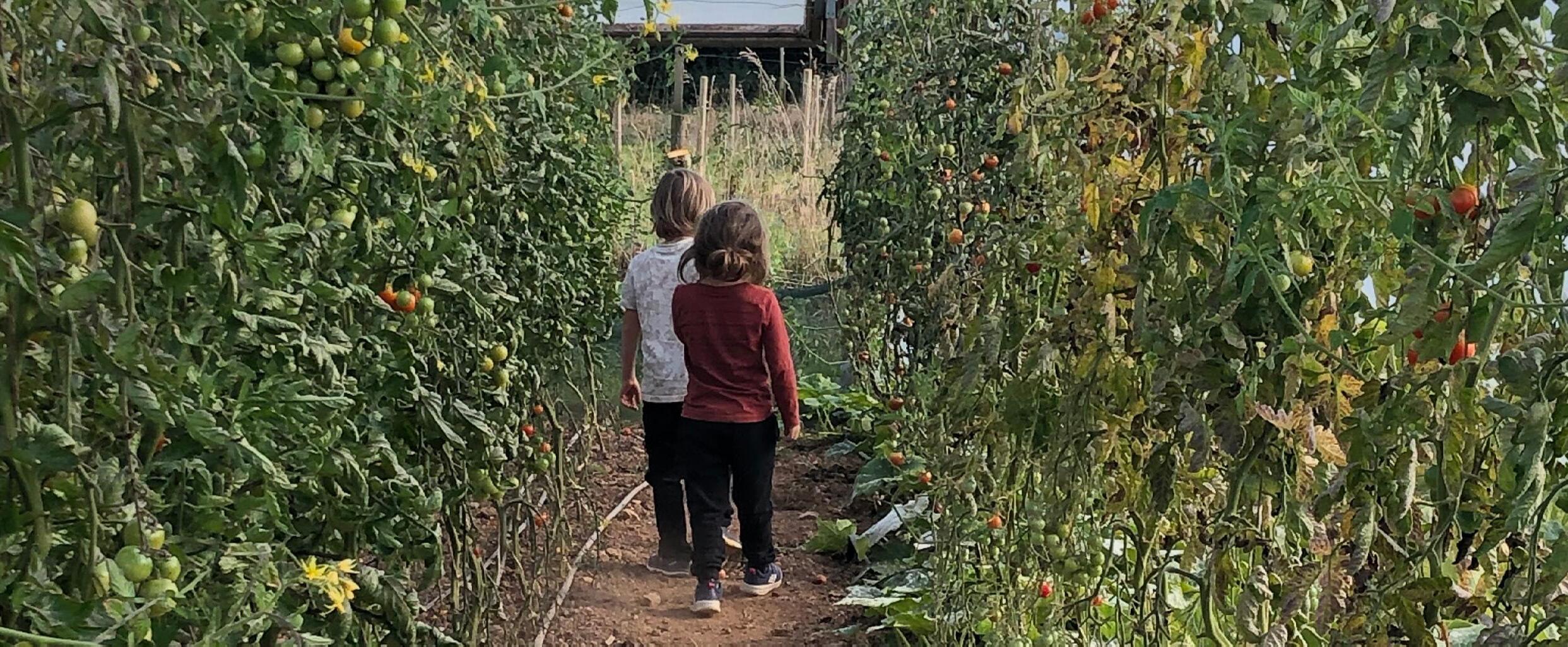




































































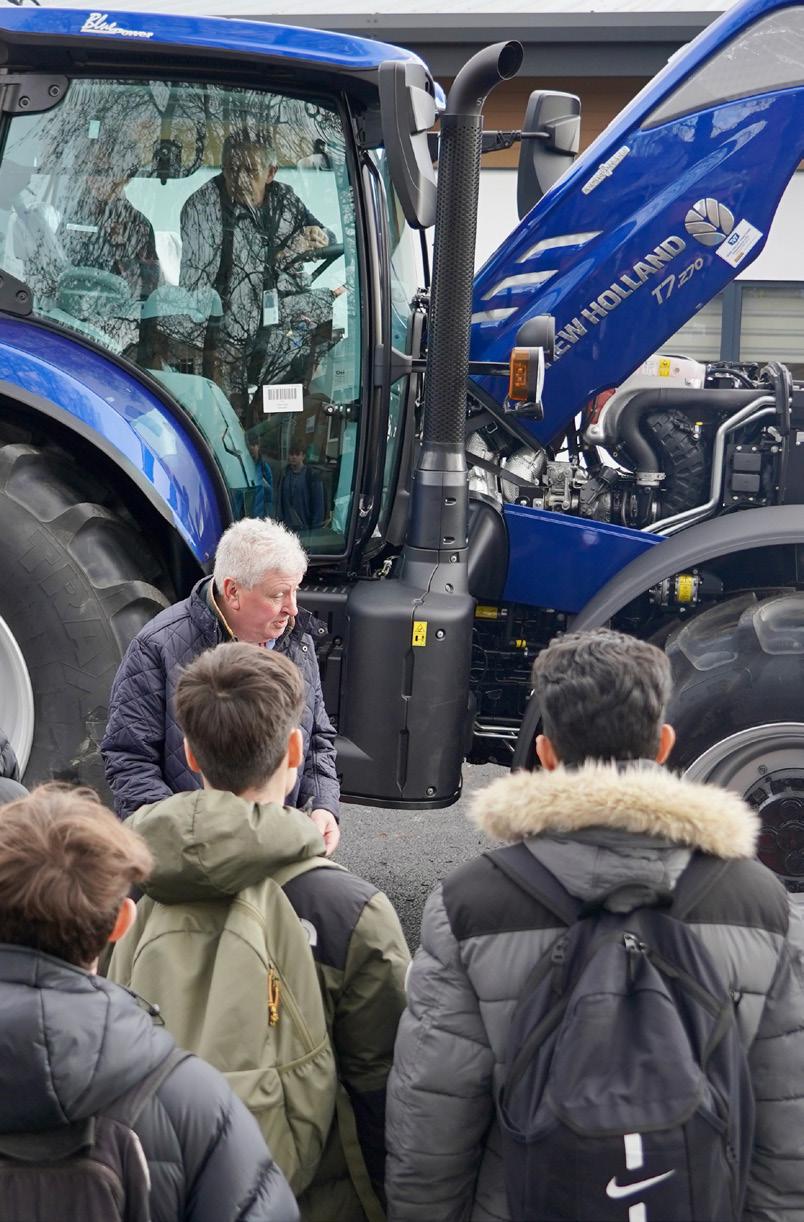


























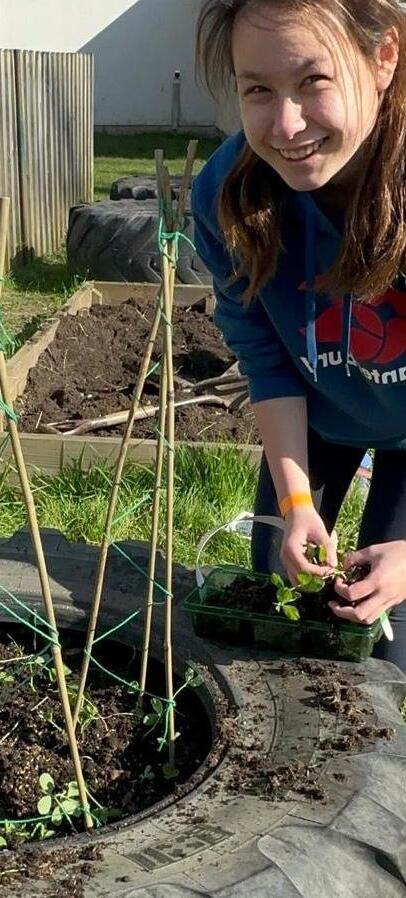








The information in this document is intended to stimulate discussion and does not purport to represent the complete picture. It has been compiled by the authors in collaboration and in good faith and is delivered to interested parties for information and discussion. By reading this document, the recipient agrees to be bound by this limitation. All content and images published in this document are ©️ Olivia Shave and her co-authors and licensors 2025. You must obtain prior written permission from the authors named on the front page to copy or redistribute this document in whole or in part.







For further information please email info@ecoewe.co.uk